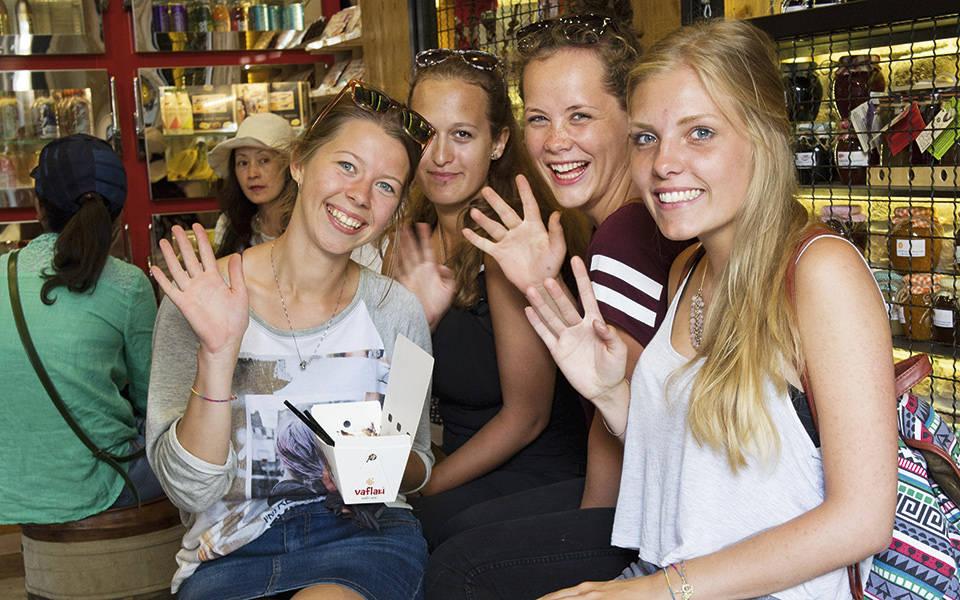On a recent mid-October Monday morning, the streets of Athens offered their usual, happy fare. The sun was shining, the last of the summer weather was proving resilient and all roads leading to Plaka and the Acropolis were thronged with Europeans, Asians, Australians and Canadians.
Lines of tourists had formed at the Acropolis ticket booths, while other visitors were raising their selfie-sticks in order to grab better shots of Anafiotika, Athens’ “secret” neighborhood, probably after reading about it in some trendy guide book.
Virgilia and Francesco, hailing from Como in northern Italy, stepped off their direct flight to Athens from Milan, rented a car and, having visited Meteora and Delphi, returned to the Greek capital for three days, seeking to discover its charms. Steve and Samantha, who came from Canada on their honeymoon, were on their first European trip. They spent three days in Paris, three more in Athens and a week in Santorini. “You Europeans are truly lucky. In just a few hours, you can come in contact with radically different cultures. For us, the closest foreign country is the US and that’s really boring,” says Steve, as we walk through Plaka.
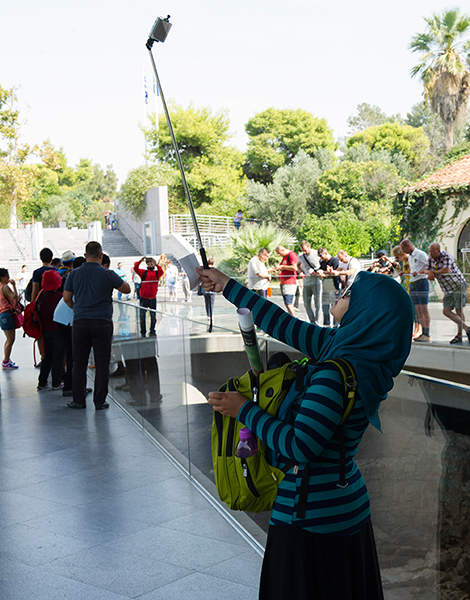
© Vangelis Zavos
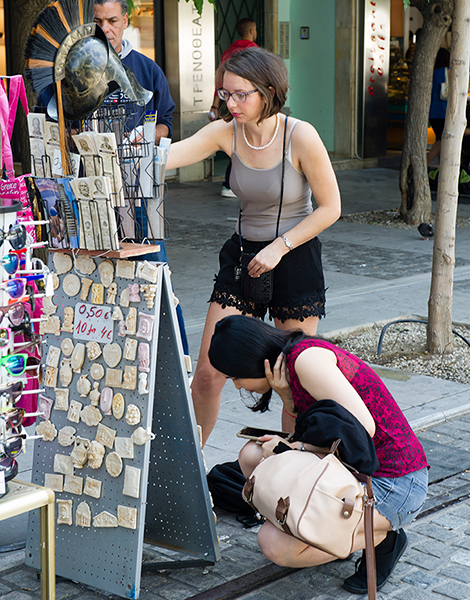
© Vangelis Zavos
“Athens has many beautiful spots to offer, its night life is vibrant even on weekdays and, most important of all, its a safe destination for tourists.” This is the consensus among most visitors in recent years, according to Ansel Mullins, co-founder of Culinary Backstreets, which offers gastronomical city tours. “Athenians are extroverted, while most of them speak excellent English. It is a city filled with potential: its waterfront is huge, scarcely known and underdeveloped, as opposed to Barcelona’s and this feature would be sufficient to further boost Athens’ tourist appeal. Its image is one of a hip capital – another Berlin – with an interesting city center that has much more to offer apart from ancient monuments. It’s also relatively small in scale, making a two- to three-day visit amply sufficient,” he says.
Since March 2012, when Culinary Backstreets arrived in Athens (the company is headquartered in Istanbul), reservations have multiplied, testimony to the steadily growing number of tourists visiting and staying for a few days in the city.
Numbers speak
The most recent data from Athens International Airport is revealing: a total of 3,045,801 foreign visitors landed in the airport from January to September of this year, while 2,072,000 of them stayed in the capital, 273,300 more than in 2014. Of those who stayed in Athens, just over 52 percent traveled on to other domestic destinations while the rest remained in the capital.
The Athens Hotel Association states that room occupancy in the first eight months of the year was significantly higher than in the same period last year, and at a level comparable to Paris, Munich and Barcelona but offered at much cheaper rates.
“ 3,045,801 foreign visitors landed in Athens Airport from January to September of this year, while 2,072,000 of them stayed in the capital, 273,300 more than 2014.”
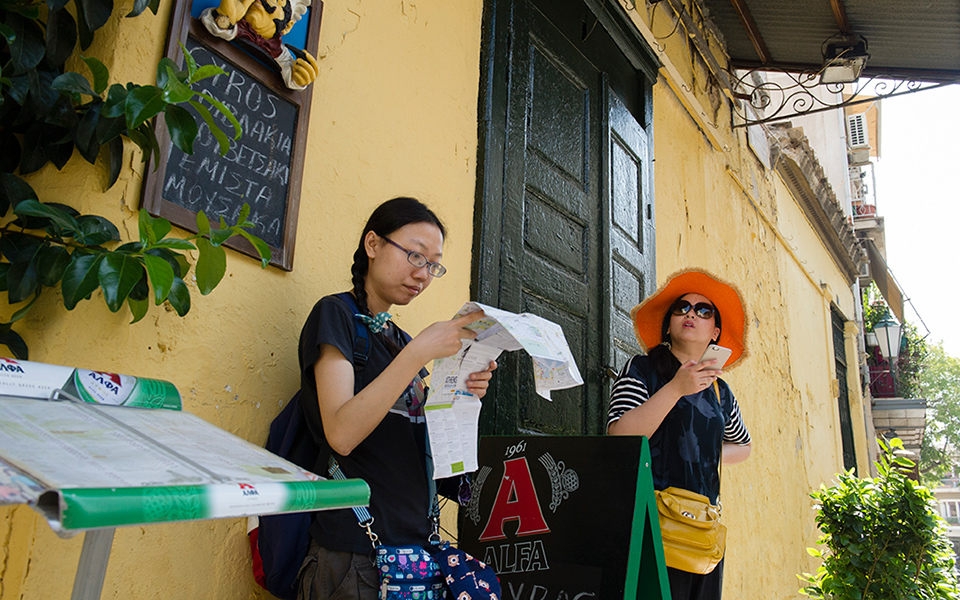
© Vangelis Zavos
“Athens has a lot to offer the short-stay traveler. I also ought to confirm that bookings are soaring,” says Tim Ananiades, general manager of the Grande Bretagne and King George hotels. “It is my personal opinion that this upward trend will continue. My feeling is confirmed by the reservations for next year from the US, Latin America, China and the Middle East.”
Customers from Arab countries are starting to view Athens as a city-break destination, a short-term getaway for shopping and entertainment. “They are lured by the many direct flights from Dubai, Abu Dhabi, Doha, by our year-round mild weather and by our highly competitive rates,” Ananiades concludes.
It is true that competitive pricing, the upbeat image Athens has managed to project, the important number of new routes offered by Aegean Airlines and the numerous new airlines flying into the city’s airport have all played a part in the capital’s rebirth. Long forgotten is the gloom of 2011 and 2012, when the effects of the financial crisis were keenly felt. “The Athens Hotel Association did its upmost to remedy that sorry situation. We created a network, inviting 1,800 travel agents, bloggers and journalists from around the globe to stay in Athens and write about their experience,” says the association’s president, Alexandros Vasilikos.
“ Long forgotten is the gloom of 2011 and 2012, when the financial crisis’ effects were keenly felt.”
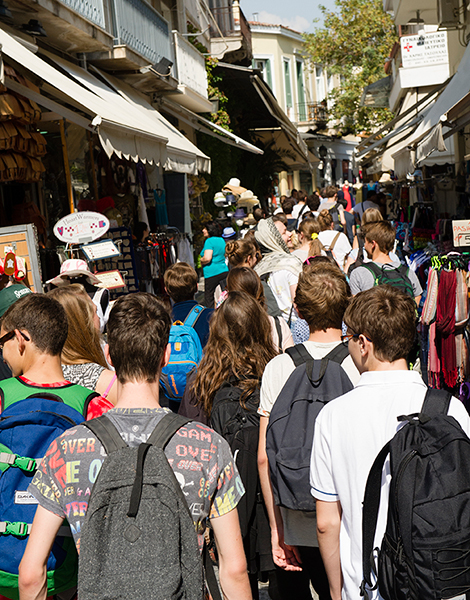
© Vangelis Zavos
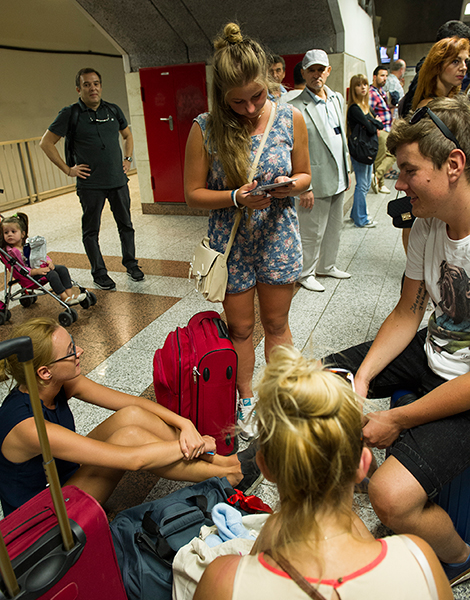
© Vangelis Zavos
“The Athens hotel product is robust, notwithstanding the fact that 90 units have ceased operations since 2004. The capital boasts low prices and readily accessible beaches and islands. How many people realize that you can be in Aegina in an hour?” asks Vasilikos, who adds that there is more room for improvement.
“A large commercial area must be created around Syntagma square where stores will be open on Sundays, as is the case in other tourist destinations around Greece. We should also be able to purchase electronic tickets for museums and archaeological venues in order to offer a wider range of services to our customers.”
The lingering questions are many: When will the National Gallery reopen? How about the National Museum of Contemporary Art? And what about the old airport at Hellenikon? It’s 15 years since the airport moved.”
“Athens is a popular destination. It’s up to us to see it taking off,” concludes Vasilikos.
“ The capital boasts low prices and readily accessible beaches and islands. How many people realize that you can be in Aegina in an hour?” states Mr. Vasilikos.

